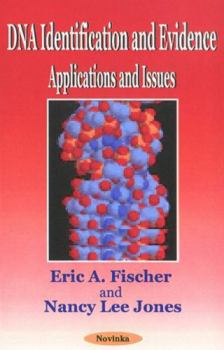DNA Identification and Evidence: Applications and Issues
This book provides an overview of how the genetic information contained in DNA is used for identification, and a discussion of issues associated with those uses. It begins by discussing the unique properties of genetic information that make it a powerful tool for identification and what is involved in making identifications from DNA. Next is a description of current federal programs and activities, followed by discussion of issues raised by the development of this new technology. Major issues include the use of DNA identification in the criminal justice system (including sample backlogs, databases, and post-conviction DNA analysis), impacts of technological improvements, and privacy. DNA evidence is a powerful forensic tool in criminal cases. Its use and capabilities have increased substantially since it was first introduced in the late 1980s. A DNA profile may provide powerful evidence in many criminal investigations, either to incriminate or exculpate a suspect. DNA evidence is very stable and can be extracted and profiled from a sample many years after being deposited. The technologies used are increasingly sensitive, powerful, fast, and cost-effective. The cost of performing analyses and the time required continue to decline. Those features of the technology are likely to continue to improve over the next decade.
Format:Paperback
Language:English
ISBN:1560729724
ISBN13:9781560729723
Release Date:January 2001
Publisher:Nova Science Pub Inc
Length:75 Pages
Weight:0.25 lbs.
Dimensions:8.3" x 0.3" x 5.3"
Related Subjects
LawCustomer Reviews
0 rating





